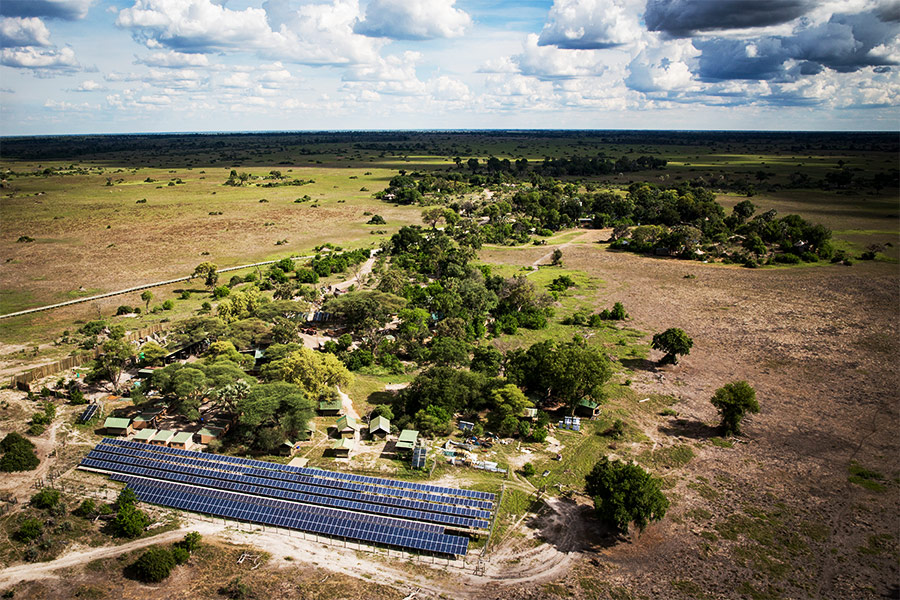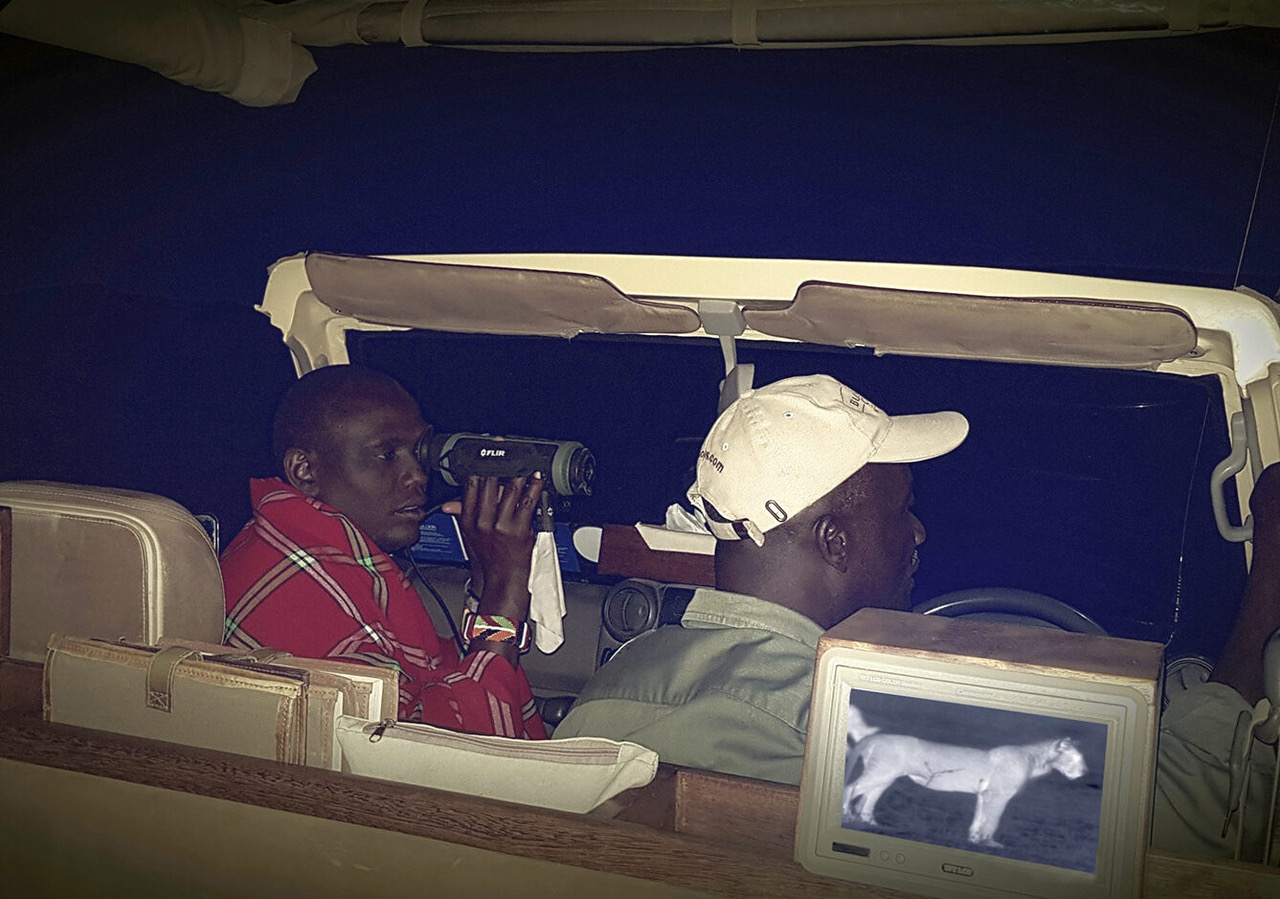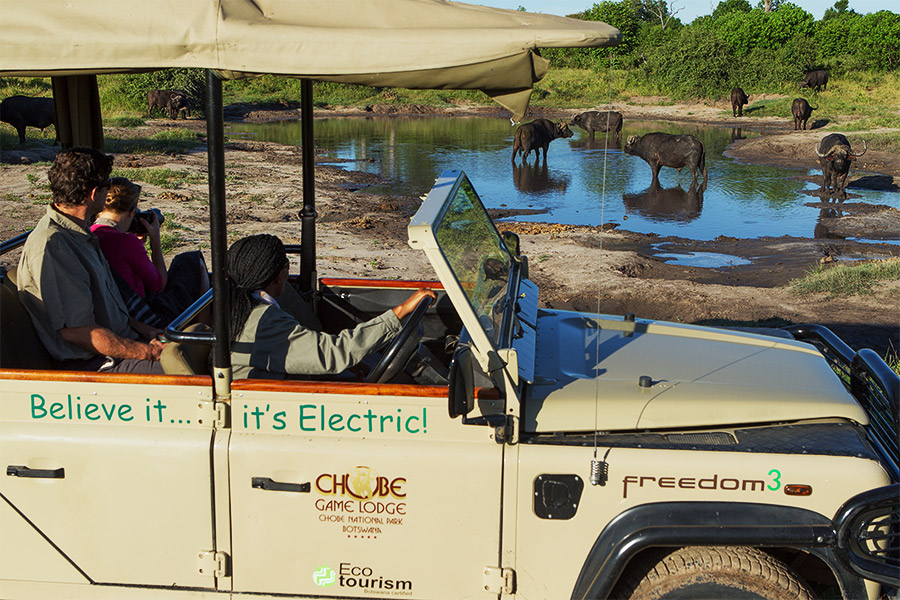Africa’s safaris have gone high tech
From solar powered camps to electric boats, this is how a few of the continent's safaris are changing for the better
A few pioneering safari camps are implementing cutting-edge technology in some of the world’s most challenging and remote landscapes to deliver an experience that’s better for their guests and the planet. Here, we look at the future-facing innovations being used by the forerunners with the hopes that others will follow suit.

Wilderness Safaris Mombo-Crookes and Jackson/ Image : Wilderness Safaris

Sometimes, a trip off the grid is in order—literally. While some African camps and lodges are linked to the national power grid, others offer a completely unplugged experience. Wilderness Safaris, Africa’s leading ecotourism company, has 47 camps and lodges in some of the world’s most isolated and untouched locations. This means that they’re often required to generate their own electricity. In a light-bulb moment, the fiercely eco-minded company vowed to move away from a reliance on fossil fuels and implement solar power wherever possible to lighten their footprint.
Today, 13 of their camps operate on 100% solar power, while the other 34 camps use solar-inverter or battery-inverter hybrid systems. Plus, with the implementation of solar thermodynamic geysers throughout all of their properties, they have continued to slash their reliance on generators, saving an estimated 1,071,101 litres of diesel every year.

Using a FLIR camera during a nighttime drive with Mara Bushtops

A nighttime game drive is one of the most fascinating ways to observe African wildlife – if you can manage to see in the darkness, that is. Mara Bushtops, in Kenya’s dramatically breathtaking Masai Mara, has found a way to add some light to the situation by employing heat-seeking night-vision cameras to search for nocturnal animals that aren’t visible during daytime hours.
Specially converted safari vehicles and rangers outfitted with the state-of-the-art cameras roam the moonlit Masai Mara for fauna like springhares, bat-eared foxes, and even lions, hyenas, and leopards, as they may be found hunting at night. The forward-looking infrared (FLIR) cameras transmit images to individual monitors set on the back of each of the vehicle’s seatbacks, providing the passengers with real-time night vision. Normally, night game drives aren’t permitted in Masai Mara or the Serengeti, but because Mara Bushtops is located amid their own Bushtops Conservancy, these future-forward nocturnal safaris are a go.

Botswana's Chobe Game Lodge has a whole fleet of electric vehicles

Twice-daily game drives in massive gas-guzzling 4x4s are unfortunately a standard aspect of most safaris, but certain lodges have found a way to make these drives a bit greener by introducing electric vehicles. Electric safari vehicles (ESVs) are somewhat rare in Africa’s safari heartlands due to their price (and, to an extent, peoples’ mistrust of them to get you out of any sticky situations), but certain trailblazing companies are willing to shoulder the costs in aid of the environment. Kenya’s Lewa Wildlife Conservancy, for example, was among the pioneers in East Africa, bringing the area’s first ever ESV to the savannah grasslands around Mount Kenya back in 2019.
Southern Africa was even further ahead of the game. Some five years prior, Chobe Game Lodge in Botswana’s famous Chobe National Park brought in an entire revolutionary electric game fleet, which is made up of four electric vehicles and four electric boats. These clean vehicles are charged via the lodge’s Eco Workshop, which is lined with more than 300 solar panels. The roofs of the four electric boats are lined with solar panels as well, ensuring that a trip down the wildlife-packed Chobe River is mesmerisingly quiet and clean.
Since the introduction of this electric fleet, Chobe Game Lodge has significantly lessened its impact on the environment with an estimated 100,000-kilogram reduction on their carbon dioxide emissions and countless advantages to the local wildlife population, who are no longer disturbed by noise pollution or the scent of petrol.